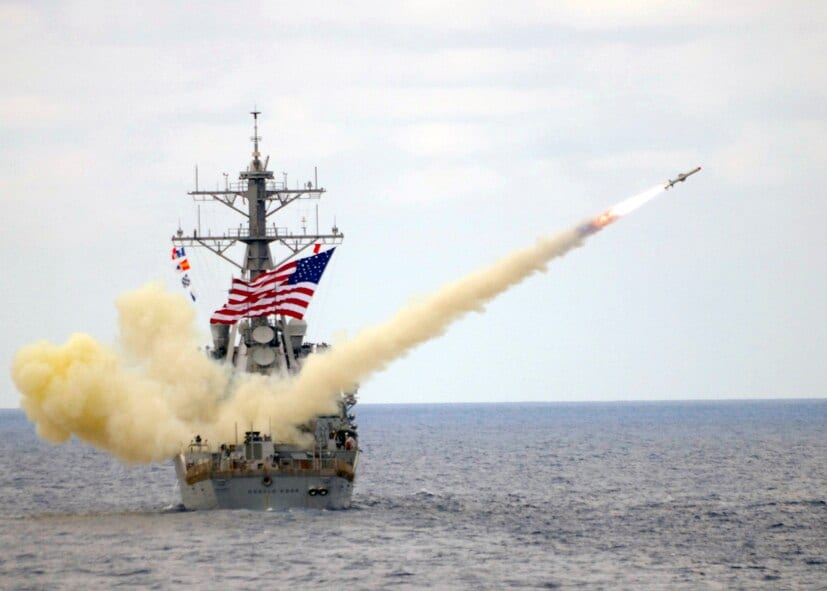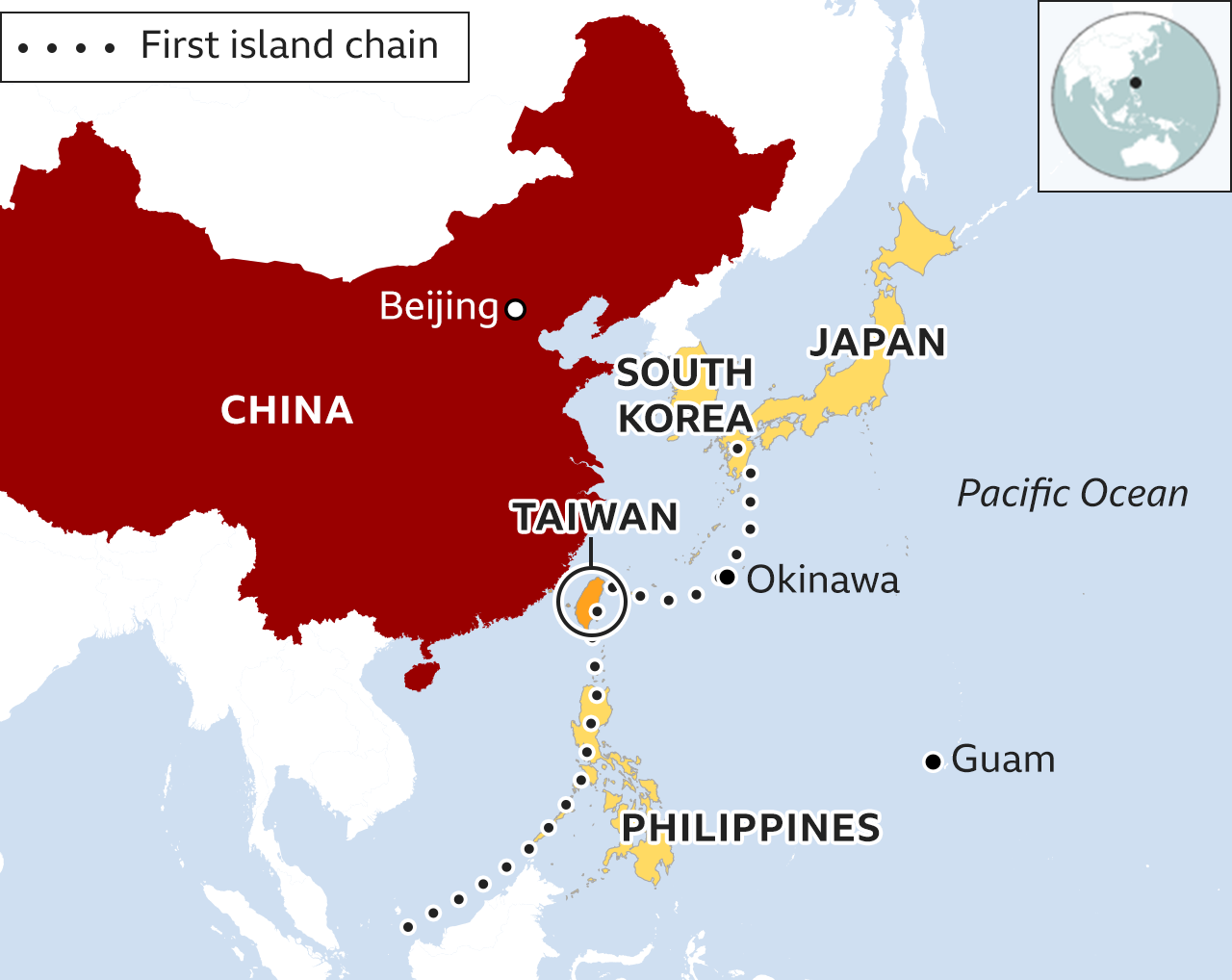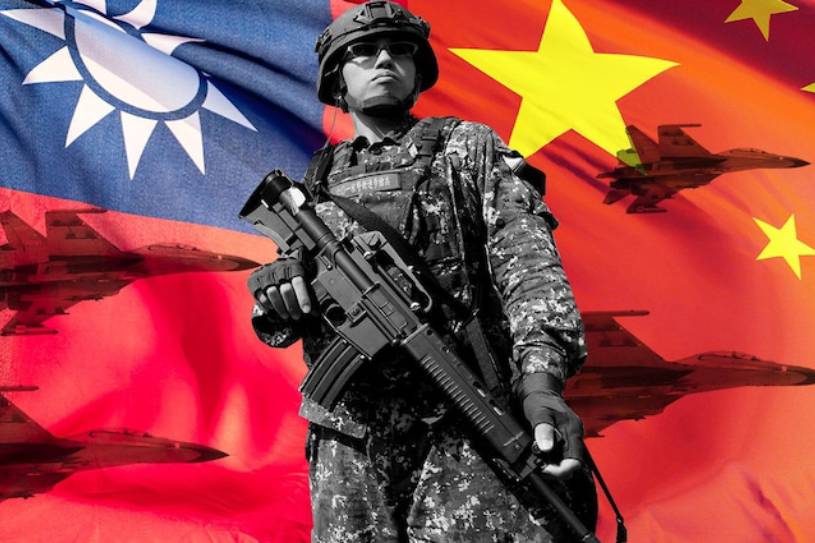The upcoming presidential election in Taiwan, scheduled for January 2024, is already heating up, and one thing is clear: China’s presence is being felt like never before. Beijing has significantly amplified its pressure campaign in recent months, aiming to influence the outcome of the vote and ultimately achieve its goal of “reunification” with the island nation, and suspect of Taiwan war with china.
Table of Contents

Military Maneuvers and Warplanes Buzzing:
Military intimidation has become a key tactic for China. Fighter jets have buzzed Taiwan’s airspace with increasing frequency also increasing doubt for taiwan war with china, while warships have conducted close-range drills, simulating potential blockades or even an invasion. These displays of force are meant to send a clear message: Taiwan’s independence is not tolerated, and military action is a viable option.
In the Dragon’s Shadow: Coercion and Intimidation
Across the Taiwan Strait, Beijing’s shadow stretches long and ominous. Fighter jets scream through the skies, a menacing echo of China’s military might. Warships prowl the surrounding waters, a grim reminder of potential blockades and invasion scenarios. Economic threats hang heavy in the air, a whispered promise of targeted boycotts and trade disruptions should Taiwan stray too far from the path desired by Beijing. This calculated campaign of coercion aims to sway the vote, pushing Taiwan towards the elusive, and for China, essential, goal of “reunification” – on China’s terms, of course.
Colorado Supreme Court Disqualifies Trump from 2024 Primary Ballot (December 19, 2023)
Unprecedented Challenges for Gaza’s Healthcare System

The American Dragonfly: Arming in the Shadows
But Taiwan isn’t alone in this dance. The US, its silent guardian, remains a constant presence, though not one readily visible. Behind the scenes, it quietly equips Taiwan with the tools of self-defense: anti-ship missiles that whisper defiance from coastal batteries, fighter jets that rise to meet the Chinese challenge in the skies. This “porcupine strategy” aims to transform Taiwan into a bristling defensive force, making any potential Chinese action a costly endeavor, buying precious time and deterring aggression.
Beijing on the Ballot: Identity Politics at Play
Beyond the roar of jets and the clink of weaponry, the election plays out on a more profound stage – the battlefield of identity. Incumbent President Tsai Ing-wen embodies the spirit of self-reliance, of a distinct Taiwanese identity forged in the crucible of separation. Her stance fuels Beijing’s rage, but resonates with many Taiwanese who cherish their hard-won autonomy. Her opponents, particularly from the Kuomintang (KMT) party, advocate for closer ties with the mainland, a pragmatic approach that resonates with those who yearn for economic stability and fear isolation. This internal tug-of-war over identity adds another layer of complexity to the already-murky waters of the election.
Discordant Symphonies: Domestic Politics Muddies the Waters
Within Taiwan, the political landscape adds its own discordant melodies to the song of the election. The DPP faces internal dissent, with factions questioning Tsai’s approach and vying for their own slice of power. The KMT, meanwhile, stumbles between advocating for closer ties with China and reassuring a wary electorate of their commitment to democracy and autonomy. This internal struggle makes predicting the election outcome a fool’s errand, ensuring only that the stakes remain undeniably high.
The World Watches: A Balancing Act
The international community observes this high-wire act with bated breath. The US, the ever-present silent partner, walks a tightrope, deterring Chinese aggression while avoiding a direct confrontation that could spiral into regional chaos. Japan and South Korea, caught in the crosshairs of economic dependence and strategic interests, juggle their anxieties about Chinese assertiveness and their desire for regional stability. Each player watches, waits, and prepares for the potential fallout of whatever melody Taiwan’s electorate chooses to play.
The Election: A Defining Pivot Point
The outcome of this election will be a pivot point, forever altering the trajectory of Taiwanese-Chinese relations. A Tsai victory could solidify Taiwan’s independent path, pushing it further from China’s embrace and potentially triggering increased Chinese pressure and military maneuvering. A KMT win might offer an olive branch to Beijing, easing immediate tensions but raising long-term questions about Taiwan’s future autonomy and the potential erosion of its hard-won freedoms.

How far is Taiwan from China
The distance between Taiwan and China varies depending on the specific points being measured. Here are some key details:
- Closest Point: The closest distance between the island of Taiwan and the mainland of China is about 130 kilometers (81 miles) at the Pingtan Island near Pingtan County, Fujian Province.
- Average Distance: The average distance between the western coast of Taiwan and the southeastern coast of China is about 180 kilometers (112 miles) across the Taiwan Strait.
- Northern and Southern Extremes: The distance between Taiwan and China can also vary depending on the location on both sides. For example, the northernmost point of Taiwan (Cape Fuguei) is about 395 kilometers (245 miles) from the nearest point on the mainland. Meanwhile, the southernmost point of Taiwan (Cape Eluanbi) is about 220 kilometers (137 miles) from the nearest point on the mainland.
It’s important to note that this is just a geographical distance. The political and historical context between Taiwan and China is extremely complex and adds another layer of significance to the distance between the two entities.
Beyond the Headlines: A Deeper Look
To truly understand this complex dance, we must delve deeper than the headlines:
- The Echoes of History: The legacy of the Chinese Civil War, the bitterness of separation, and the lingering resentment fueled by years of political and economic divergence – these historical ghosts haunt the present-day dynamics.
- The Nuances of Domestic Politics: Recognizing the different factions within the DPP and KMT, their motivations, and their visions for Taiwan’s future is crucial to comprehending the full picture.
- The Ripple Effects of Geopolitics: The potential economic and military repercussions of a Taiwan-China conflict extend far beyond the island, impacting global trade, regional stability, and the delicate balance of power in the Asia-Pacific.
A Shadowed Future: Uncertainty Reigns
The future of Taiwan and China remains shrouded in a fog of uncertainty. The election campaign will be intense
As the election draws closer, it’s important to stay informed and engaged with this critical issue that has the potential to shape the future of the Asia-Pacific region and beyond.










2 Responses
Howdy! Do you know if they make any plugins to assist with SEO?
I’m trying to get my website to rank for some targeted keywords but I’m not seeing very good success.
If you know of any please share. Cheers!
I saw similar article here: Wool product
sugar defender ingredients Finding Sugar Defender has actually been a game-changer for me, as I’ve always been vigilant concerning
managing my blood sugar level degrees. I now really feel empowered and confident in my capability to keep healthy levels, and my most recent checkup
have reflected this development. Having a trustworthy supplement to complement my a huge resource of convenience, and I’m absolutely appreciative for the
substantial difference Sugar Protector has
made in my overall wellness.